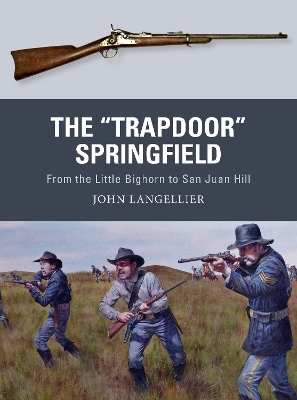Weapon
1 primary work
Book 62
Intended to replace the proliferation of different small arms fielded by US forces during the American Civil War, the "Trapdoor Springfield" was designed in 1865-66 by Erskine S. Allin. Using metallic cartridges, it could be loaded in a single action, increasing the number of shots per minute as much as fivefold. The new weapon quickly proved its worth in two separate incidents in August 1867: small groups of US soldiers and civilians armed with the trapdoor repulsed numerically superior Native American contingents. A simple and cost-effective weapon, it was used, along with its variants in every US conflict in the three decades after the Civil War, especially on the American frontier.
Drawing upon first-hand accounts from US soldiers, their Native American opponents, and users such as buffalo hunters, this is the story of the "Trapdoor Springfield", one of the defining weapons of the Indian Wars.
Drawing upon first-hand accounts from US soldiers, their Native American opponents, and users such as buffalo hunters, this is the story of the "Trapdoor Springfield", one of the defining weapons of the Indian Wars.
